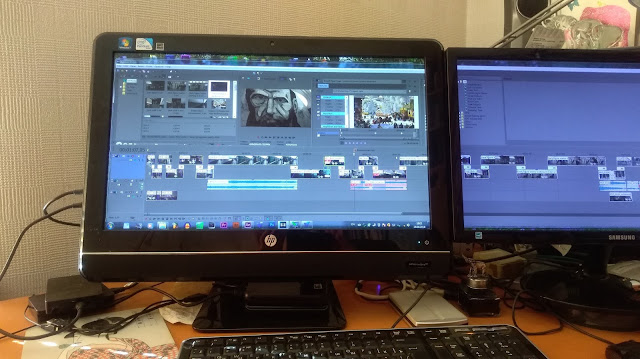The King of Time
Reading a book called "Deleuze and Futurism" by Helen Palmer and there is mention of Khlebnikov and his poem "The King Of Time" - a title which it appears he also applied to himself.
Reading a book called "Deleuze and Futurism" by Helen Palmer and there is mention of Khlebnikov and his poem "The King Of Time" - a title which it appears he also applied to himself.
Trained in the natural sciences and mathematics and an artist and poet, Khlebnikov thought he had discovered the Laws of Time and Tables of Destiny, by which enlightened humans could live in harmony with themselves and with nature. He devoted his restless life to finding a language which would articulate his vision. Experiments with words became paths to a reinvigorated future, and produced some of the most extraordinary poems in the Russian language.
The presence of time in poetic rhythms forced him to look for rhythms beneath the conventional ones to seek meaning in the cyclical patterns of the universe, according to Helen Palmer the books author. This links to Blok who also sought patterns and rhythms of history below the surface of facts and chronological events of the day to day.
Andrey Bely and other authors of the time were also engaged in a similar task. In addition, Larionov developed a model of time looking backwards and forwards simultaneously.
And this in turn links to the idea, popular at the time that there were different layers and dimensions in reality.
This also connects to Blok's ideas in The Fairground Booth, the Avant-garde, theatre etc. One of the weaknesses of and dissatisfaction with theatre of the time was that it was stuck in one point of time. It could not move forward. It was stuck at a historical time and stuck at the time the play was written or the time in the play itself in that it had to adhere to an accepted or conventional idea of time and the time that was being represented in the play.
The Fairground Booth abandons these notions of time. It is as if time does not exist. In the play there is no historical time. The mixture of genres especially theatrical genres across time in one play seems to encourage the idea if time being concertinaed into a flexible simultaneity, where time has all but disappeared.






